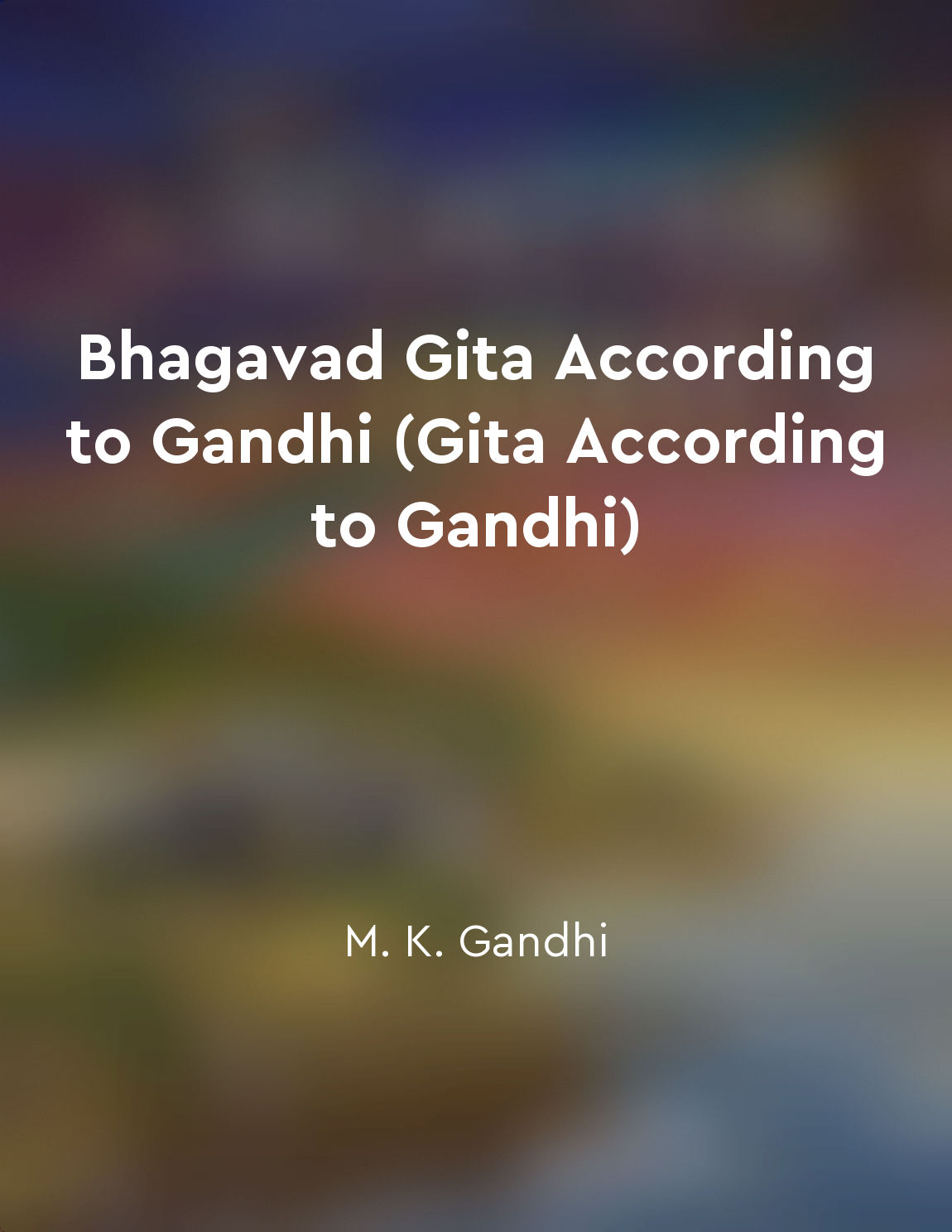Embracing the divinity within from "summary" of The Bhagavad Gita by Swami Sivananda
The Bhagavad Gita teaches us to recognize and embrace the divinity within ourselves. It emphasizes the idea that each one of us possesses a spark of the divine, and it is our duty to nourish and cultivate this divine essence within us. By connecting with this inner divinity, we can tap into a source of strength, wisdom, and guidance that transcends our limited human understanding. When we embrace the divinity within, we are able to see ourselves and others in a new light. We realize that we are not just physical beings moving through the world, but spiritual beings on a journey of growth and self-realization. This shift in perspective allows us to approach life with a sense of purpose and meaning, knowing that we are part of something greater than ourselves. By embracing the divinity within, we also come to understand that all living beings are connected by this same divine essence. We see that the divisions and conflicts that exist in the world are superficial and ultimately illusory. Instead of seeing others as separate from ourselves, we recognize them as manifestations of the same divine energy that animates us. When we embrace the divinity within, we are able to cultivate qualities such as compassion, kindness, and forgiveness. We see these virtues not as mere moral imperatives, but as expressions of our true nature as divine beings. By acting in accordance with our inner divinity, we can bring about positive change in ourselves and in the world around us.- Embracing the divinity within is not just a philosophical concept, but a practical path to self-transformation and spiritual growth. It requires us to cultivate self-awareness, mindfulness, and a deep connection to our innermost selves. Through this process, we can overcome the limitations of our ego and align ourselves with the higher purpose that guides us on our journey through life.
Similar Posts

Developing selfcontrol and discipline is vital for spiritual progress
In the Bhagavad Geeta, it is emphasized that developing self-control and discipline is crucial for making spiritual progress. W...
The concept of moksha represents liberation from the cycle of rebirth
The concept of moksha is central to the religious beliefs of India. It is believed that through moksha, one can attain liberati...

Renounce selfish desires
The teaching of renouncing selfish desires is central to the Bhagavad Gita. According to this sacred text, selfish desires are ...
The book aims to help readers understand the profound wisdom of the Geeta
The Bhagavad Gita, often referred to as the Geeta, is a sacred text that offers profound wisdom and guidance to those who seek ...
The nature of duty and righteousness
The concept of duty and righteousness is a fundamental principle that governs the actions of individuals in the world. Duty, or...
Vedic scriptures contain valuable knowledge passed down through generations
The Vedic scriptures are a treasure trove of wisdom that has been carefully preserved and passed down through generations in In...
Understanding the Geeta can lead to spiritual growth and selfrealization
The Bhagavad Gita is a sacred text that offers profound insights into the nature of life, the self, and the universe. Through i...
Finding peace within
In the midst of turmoil and conflict, the Bhagavad Gita teaches us to seek peace within ourselves. This inner peace is not depe...

Purify the heart and mind
The key teaching of the Gita is the purification of the heart and mind. This purification is necessary for the realization of t...
The path of righteousness leads to inner peace and contentment
The Bhagavad Gita emphasizes the importance of following the path of righteousness in order to attain inner peace and contentme...


